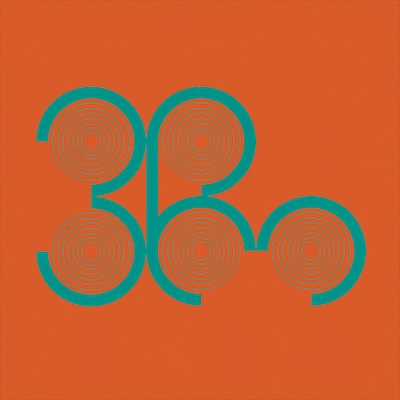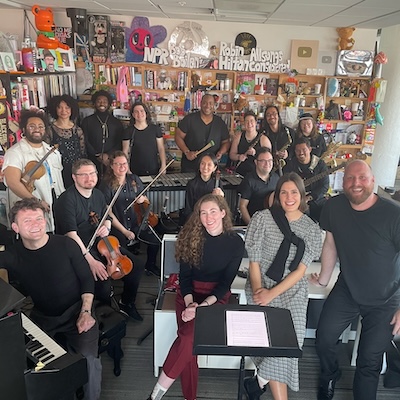Notes
"3 BPM (Three Beats Per Minute) is a musical framework for being together," says Christopher Rountree, the piece's composer and artistic director of Wild Up. "It comes out of my interest in the social dynamics of music making. It’s a piece drawn out of that energy, meant to bring a room full of people together around abstract gestures, harmonies, phrases, arcs, events, melodies, textures, games, and musical language."
3 BPM is Christopher Rountree's debut album as a composer. Rountree is a 3-time GRAMMY-nominated composer, conductor, and band leader best known as the founder and artistic director of the Los Angeles new music collective Wild Up. 3 BPM finds a lineup of musicians — including the “brilliant” (LA Times) piano duo HOCKET, the widely acclaimed violist Nadia Sirota, and various members of Wild Up — embarking on a novel musical architecture of Rountree’s conception.
The resulting music unfolds patiently, with the musicians of HOCKET — Sarah Gibson and Thomas Kotcheff — leading a conversational and lush performance that recalls Hiroshi Yoshimura’s inviting ambient sculptures, the glacial resonance of Sigur Rós, or the simmering and expansive meditations of Benny Maupin’s The Jewel In The Lotus. In a way, Rountree’s innovative musical architecture is a fresh development in the lineage of Julius Eastman’s open-ended scores (explored thoroughly in Wild Up’s ongoing tribute) or Brian Eno’s Oblique Strategies that emphasizes social interplay and human feeling — a breath of fresh air in the age of artificial intelligence.
Listen to “Pulpit,” an excerpt from 3 BPM, here.
As Rountree explains:
“At its core, 3 BPM is a conversational game, for any number of musicians, led by two leaders. These leaders — on our record a piano duo called HOCKET, comprised of two remarkable composer / performers Sarah Gibson and Thomas Kotcheff — are in dialogue with each other musically: trading bars, ending each others’ sentences, trying to play the same melodies exactly together but with slightly divergent rhythms, all of which they are co-writing rhythmically and moreover emotionally within the framework the score is giving them.
The melodies and harmonies from this leading conversation function to “unlock” or “trigger” numerous events for a larger group of musicians — on the record strings and winds from Wild Up are joined by the viola soloist Nadia Sirota — who use the architecture in the score to create shadows and environments around the leaders’ melodies, blurring, supporting, and challenging their choices.
All of this interlocking social work exists within a larger game of cyclical periodicity: each bar of music spanning the unusual distance of one entire line of the score, and each line marked with a duration of exactly 20 seconds. At the end of each twenty second increment of the piece we hear an expansive pulse: one gentle envelope of hiss and breath from a modular synth. This sound, a pulse at three beats per minute, serves as a conductor, a judge, a reminder, and a foundation to teach the musicians how their perception of time differs from reality.
As a performer when I’ve encountered notations like this one — where individual agency and dialogue are the compositional through lines, and where the notes on the page are as much graphical, and spatial, as they are logistical — I always feel at first afraid of the freedom and then liberated to make the music mine.
My hope with 3 BPM is that each new group of musicians that take the piece on will feel their own singular agency in making it as much, more even, theirs than mine. It’s a musical framework for being together.”
Composer: Christopher Rountree
Ensemble: Wild Up - HOCKET
Piano: Sarah Gibson of Thomas Kotcheff of HOCKET
Viola: Nadia Sirota
Producer/engineer: Lewis Pesacov
Mastering: Taylor Deupree
Cover art & package design: Rob Carmichael at SEEN Studio

